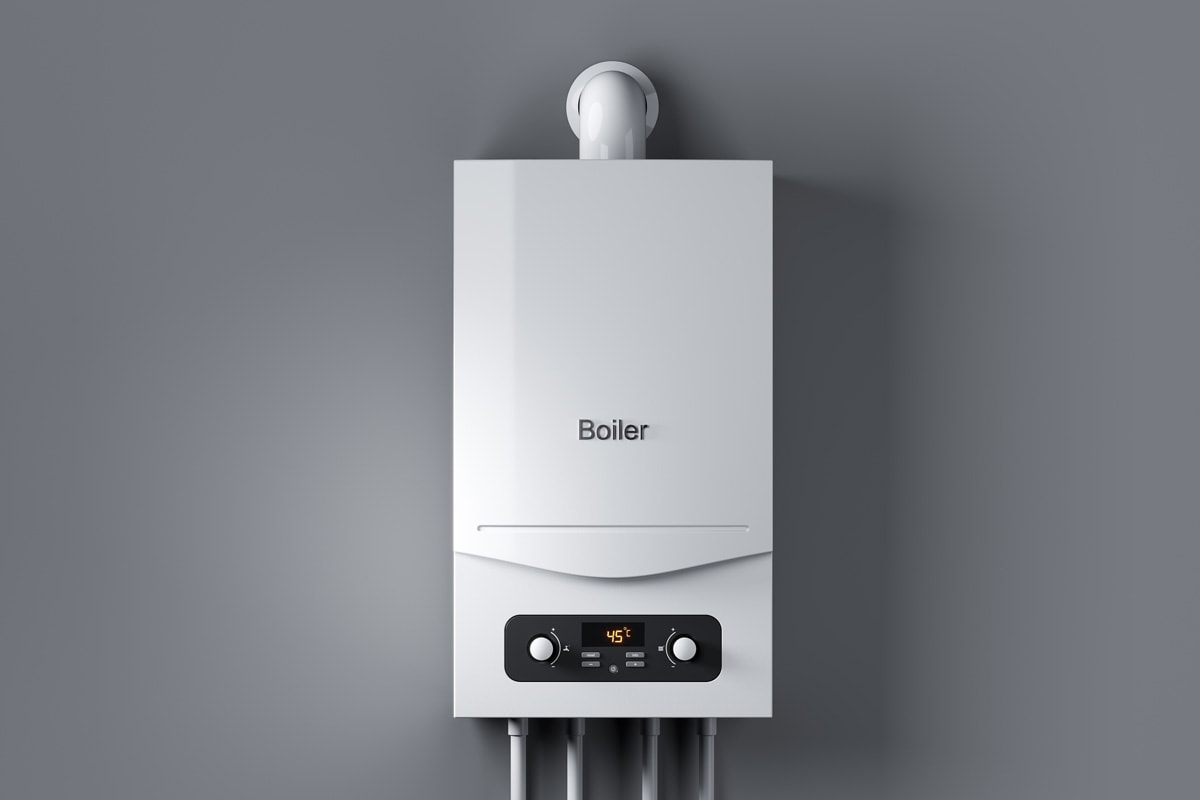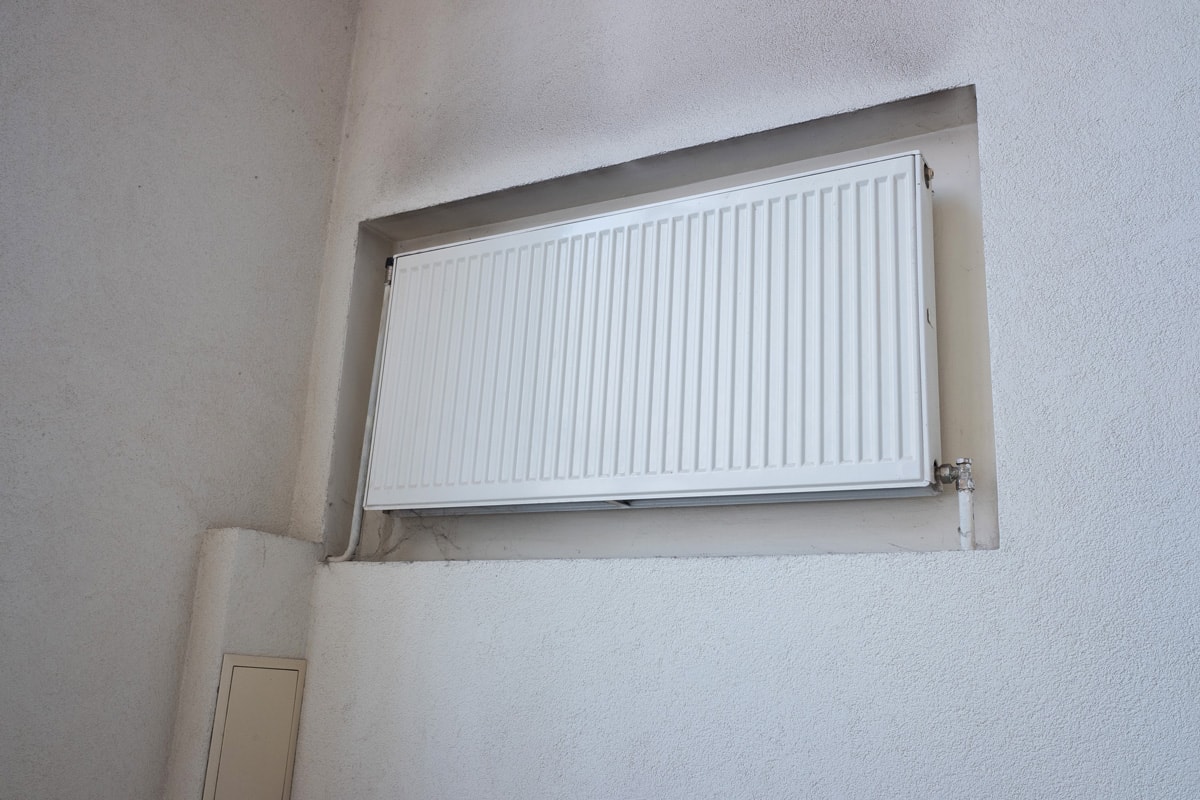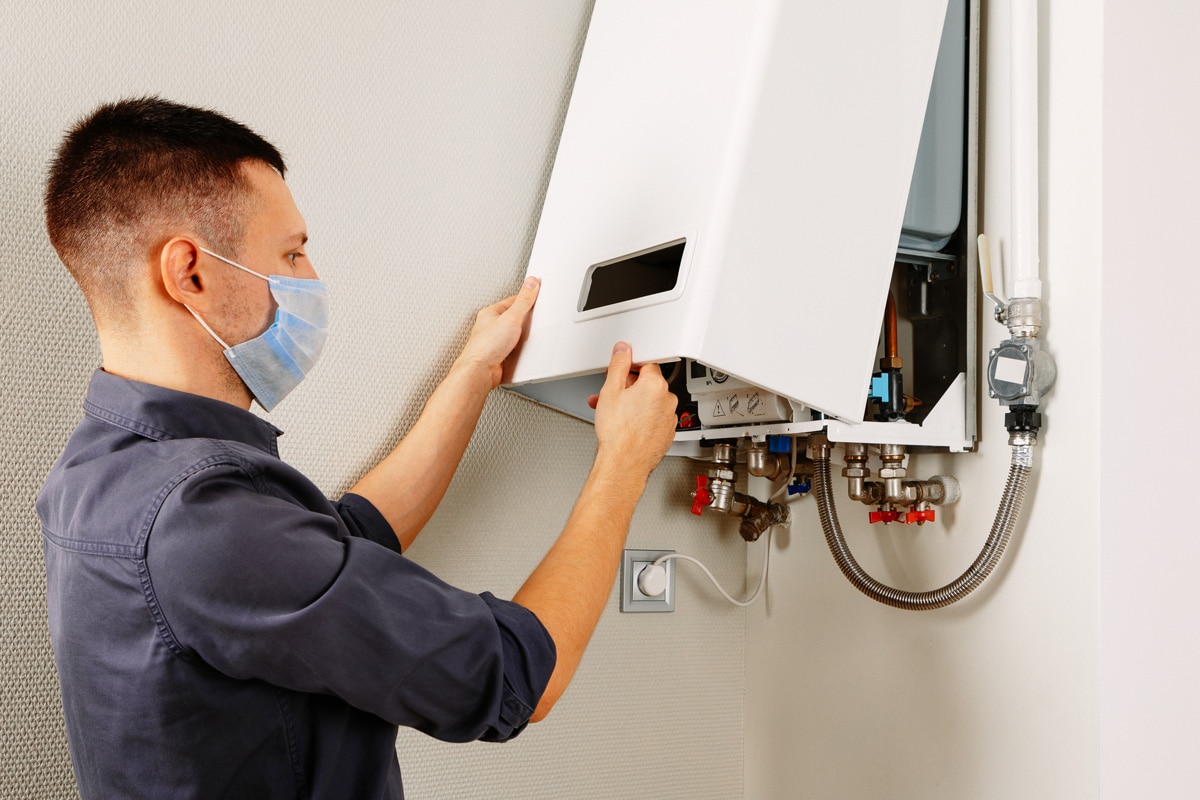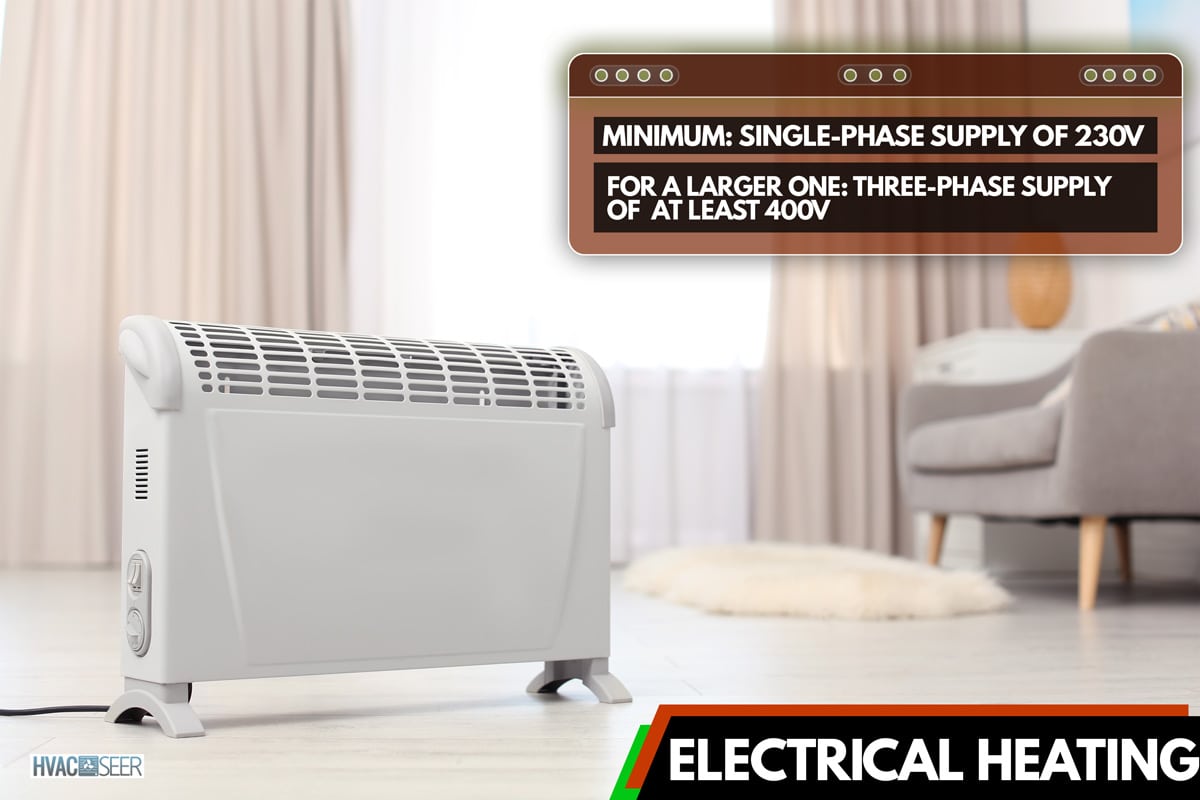Boilers work using coal, electricity, gas, or oil. However, do you need a boiler if you are heating your home with electricity? We've researched this topic to find the answers.
A boiler works by heating water which can be done using electricity. In turn, the water heats the house via radiators. But if you are heating your home using electricity, you do not need a boiler!
Heating the house during the cold season is a must and crucial. Read on to see how to do this using a boiler and electricity.
Heating: Boilers And Electrical
These two are worlds apart, but sometimes homeowners need clarification about how they work.
Boiler Heating

Boilers are a convenient way to heat your home. But they don't just miraculously do that. They contain water which needs to get the right temperature before it can emit heat through radiators that run throughout your home.
The heated water in the boiler can turn into steam or be maintained depending on your boiler type. The cooled water or steam is recycled, and the process starts again.
There are different ways you can heat boilers, and the most common methods used are:
Gas Boilers
These boilers are gas heated where the gas is injected into a combustion chamber. It ignites electrically, heating the cold water in the metal pipes. Once the temperature reaches 180 degrees Fahrenheit, the heat goes around your premises via the radiators.
Oil Boilers
They differ from gas boilers because they use oil instead of gas. Cold water triggers oil in the fire chamber to kindle via the temperature sensor. An electric charger turns the oil burner which contains highly combustible oil. Once the oil boiler is on, the heating continues.
The crucial moment is that the ignition in these boilers is electrical, but it doesn't mean this is electrical heating.
Click here to see this gas boiler on Amazon.
Electrical Heating

This type of heating is when electrical energy converts to heat energy. It heats any particular area or space. However, when you use an electrical heater to heat a room, it uses electrical resistors which emit heat.
The resistors are the heating element. You may get them in spirals or coils, strategically placed under floors, walls, along walls, or movable radiators that are easily plugged into sockets. Once the coils are hot enough, the air in the space warms up.
Tap here to see this portable electrical heater on Amazon.
Pros And Cons Of Electrical And Boiler Heating
These two methods have their benefits and drawbacks, but this doesn't mean that you have the wrong heating. You can check their pros and cons if you still need to settle.
Electrical Heating
Although it's a reasonably new heating method, it has several benefits. Electrical heating:
- Installation is straightforward for most users, unlike central heating.
- Provides comfortable heating because you can regulate the temperatures, which instantly comply.
- It is more specific to maintain because it doesn't require much equipment.
- Availability of different types of heaters with no heat leakage.
The downsides of using electrical heating are few but substantial. It means you will have to look for a way around them. The drawbacks are:
- Lack of heating when there's a power cut isn't pleasant in freezing temperatures.
- High electrical bills to sufficiently heat large homes or offices.
Boiler Heating
A home heating system can be a little intimidating to choose from, but a boiler system has immense advantages, such as:
- Energy efficient because water is a better heat conductor than air. Moreover, water takes a little longer cool than air.
- The heat produced by a boiler comes from radiators and keeps the floor and lower parts of the room warm, which benefits home users.
- Boilers heat the space more evenly, making you feel comfortable even in extreme temperatures.
Drawbacks are part of any heating system, and boilers are no exception. The cons of this one are:
- Installation and maintenance are expensive when it comes to boiler heating.
- You will require an air conditioning system because boilers don't cool space.
- Before a boiler system takes effect in heating, it'll take a while, which isn't usually ideal.
- Replacement parts of the system can be problematic and expensive to acquire. And if not done on time, you have potential water leaks.
Can Boilers Work With Electricity?
Absolutely! As more and more homeowners want to be eco-friendly, they are choosing boilers that use electricity. Like gas or oil boilers, the electricity heats the water in the pipes to the desired temperatures.
The heated water runs through the radiators and back to be recycled. Electrical boilers are perfect for small flats and homes not connected to the local gas. However, larger homes will make owners feel the pinch due to high energy bills to warm them.
Is A Boiler Similar To A Furnace?
No, not exactly. Furnaces heat air, and it's blown into the home via ductwork, grills, and registers. They use all types of fuel, which mixes with air as it burns. Heated air is pushed through the heat exchanger and further on by other heat handlers.
The furnaces are suitable and centrally placed to provide heat for the rest of the house. However, much warm air is lost on its way to the respective living spaces through the ductwork. Some of these furnaces are as old as time, and homeowners find it expensive and cumbersome to do upgrades.
On the other hand, boilers heat water that runs through radiators and heats any living space it's dedicated to. Some boilers use steam instead of hot water for heating purposes. They can also use all types of fuel for ignition. Boilers, just like furnaces, are pretty common in many homes and aren't as cheap!
Here's a post on more heating solutions: Can You Replace A Boiler With A Heat Pump?
Can You Replace A Gas Boiler With An Electric One?

Before making the switch, you must be sure it will be worthwhile. It is not difficult to replace a gas boiler with an electric one because you don't need to change the plumbing.
With an electrical boiler, you can be sure of why the energy bills are high. They are quiet, and no cleaning of build-up is required. Nevertheless, before you make any move, weigh the pros and cons thoroughly because you are in this for the long run.
Watch the following video to see what experts say on this matter.
Most Popular Electric Boilers
Electric boilers are not all that bad and let's face it, for some homeowners, they are the only alternative. To get the best of both worlds, you should look at these electric boilers that consumers find work the best.
- Electromax by Heatrae Sadia
- THERMAflow
- Elecktra EK.C
- Comet Combi Boiler
- Mattira MAC15
Some of the latest electric boilers provide a hot water supply while using water in radiators to heat your home. They are known as combi boilers. The boilers mentioned above are just some of the ones on the market.
For more information, read this: Boiler Vs. Water Heater-What's The Difference?
What You Should Know Before Using Electric Boilers
If you are sure you want to use an electric boiler in your home, you must consider some things. Even though the list is long, there are three crucial pointers.
Power Supply

Electrical boilers use a lot of power supply. On the minimum, an electric boiler uses 12kW, meaning it connects to a single-phase supply of 230V. If you need a larger one, use a three-phase supply of at least 400V.
Quantity Of Radiators
Large electric boilers can tackle more radiators, but small ones can only handle a few. For example, 28 and 32kW combi boilers can thoroughly heat a home with 10 to 15 radiators. But plain boilers with 30kW can heat 15 to 20 radiators.
Temperatures And Flow Rates
It would help if you considered the hot water temperatures you would like in your taps. The flow rate also isn't a trivial issue. This pointer becomes crucial when you want to install a combi boiler.
Do I Need A Permit To Install A Boiler?

The size of the boiler and how you want to heat it will determine if you need a permit. Generally, residential boilers don't need a permit. Undoubtedly, large boilers require a permit due to their environmental impact. Be on the safe side by contacting local agencies on this matter.
Wrapping It Up
Electrical heating doesn't require a boiler, but you can use a boiler that uses electricity to heat the water. This heating is cheaper and easier to install but can be costly. Electrical boilers can be effective as they are easily swapped with gas ones. However, using electrical energy to fuel them is more expensive than using fossil fuels.
Having differentiated these two, read more from the following post:
Can You Install Central Air Conditioning Along With Electric Heating?


